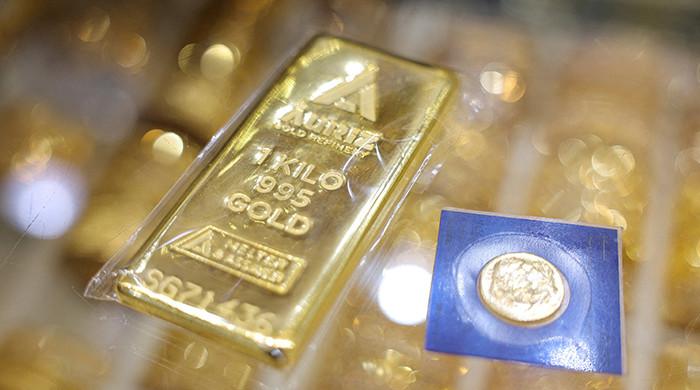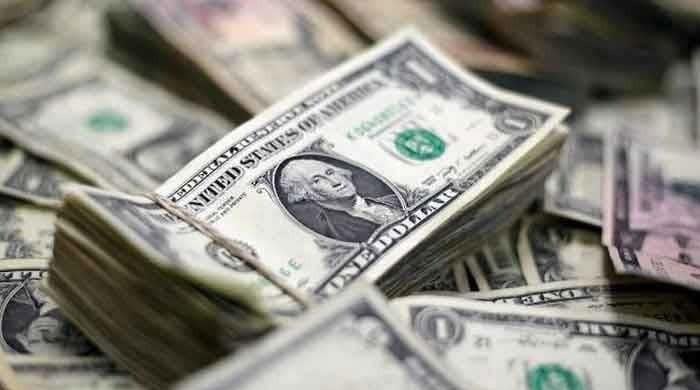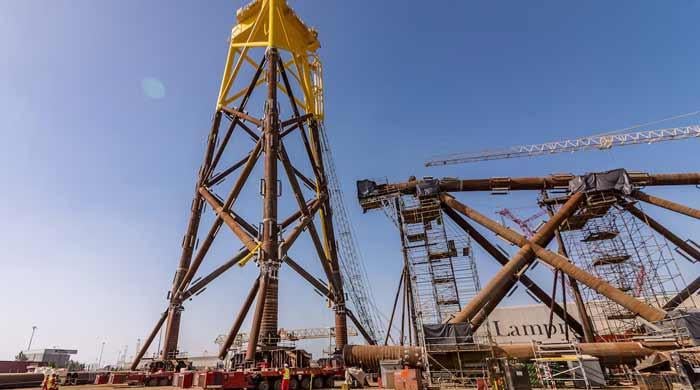PSX dives over 900 points amid continued geopolitical uncertainty
Benchmark KSE-100 index slides 2.01% to settle at 44,366.74 on Wednesday
September 29, 2021
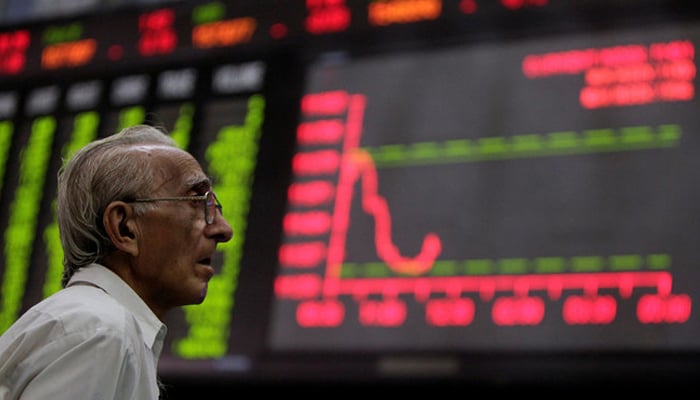
- Benchmark KSE-100 index records a decrease of 2.01% to settle at 44,366.74.
- A proposed bill in the US Senate regarding counter-terrorism in Afghanistan caused anxiety among the investors.
- Sectors contributing to the performance included banks, technology, cement, pharma and fertiliser.
KARACHI: The bears returned to the Pakistan Stock Exchange (PSX) on Wednesday as investors offloaded shares in the wake of geopolitical uncertainty, which triggered a plunge of over 900 points in the index.
A proposed bill in the US Senate regarding counter-terrorism in Afghanistan caused anxiety among investors as they weighed the potential impact on US and Pakistan ties.
On Tuesday, the US senators moved a bill titled 'Afghanistan Counterterrorism, Oversight, and Accountability Act' in the US Senate seeking imposition of sanctions on the Afghan Taliban that could also potentially extend to Pakistan.
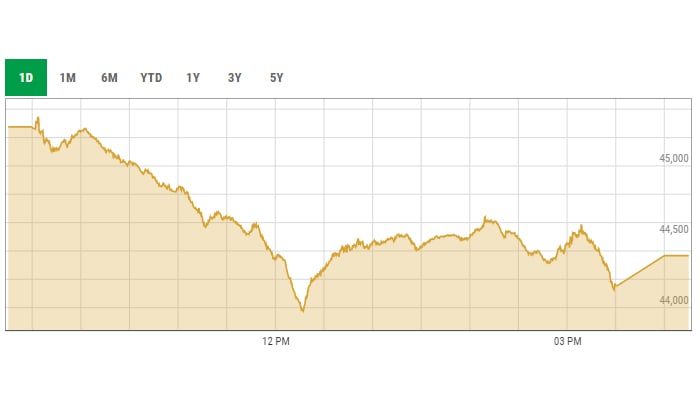
Owing to the growing uncertainty, the benchmark KSE-100 index recorded a decrease of 908.19 points, or 2.01%, to settle at 44,366.74 points.
A report from Arif Habib Limited noted that after an initial uptick of 67 points carrying positive sentiment from yesterday, the market nosedived due to “concerns on foreign policy front where the US announced sanctions on Taliban and its supporters that had PSX investors worry about the fate of relations with the US.”
Resultantly, the index tumbled 1,300 points during the session and closed the session with a decline of 908 points.
Selling was observed across the board with a major decline in technology, banks, exploration and production, oil and gas marketing companies and fertiliser scrips.
Macroeconomic concerns impacted the investment climate negatively and sent investors to the exit door, who dumped stocks to seek shelter.
Rising commodity prices, widening trade deficit and depreciating currency also raised concerns about economic stability in the country.
Sectors contributing most to the overall performance included banks (-172 points), technology (-128 points), cement (-100 points), pharma (-65 points) and fertiliser (-58 points).
During the session, shares of 560 listed companies were traded. At the end of the session, 60 stocks closed in the green, 489 in the red, and 11 remained unchanged.
Among these 560 firms, stocks that contributed positively to the index included Pakistan Tobacco Company (+19 points), Standard Chartered Bank (+3 points), GlaxoSmithKline Pakistan (+1 points), Murree Brewery Company (+0 points) and Ibrahim Fibre (+0 points).
On the flip side, stocks that contributed negatively were TRG Pakistan (-88 points), MCB (-61 points), Searle Pakistan (-35 points), Systems Limited (-35 points) and Lucky Cement (-35 points).
Volumes increased from 364.8 million shares to 468.8 million shares (+28% day-on-day). The average traded value also increased by 17% to reach $96.2 million against $82.2 million.
Telecard Limited was the volume leader with 52.4 million shares, losing Rs0.05 to close at Rs17.33. It was followed by WorldCall Telecom with 51.2 million shares, losing Rs0.20 to close at Rs2.71, and Dolmen City REIT with 36.02 million shares, losing Rs0.18 to close at Rs12.04.






